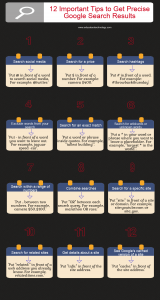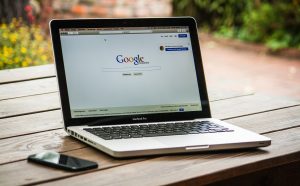In my role as a teacher-librarian, I think it is important to communicate frequently with the teachers with whom I work to understand the needs of the students and how I can assist them with their teaching. After visiting the grade 7-8 teachers, discussing curriculum needs, and some big ideas about what the students needed to work on, I decided to explore the topic of research skills. This was my opportunity to expand my knowledge of information literacy/research skills and be able to put my knowledge into practice. I saw this as an opportunity to further my knowledge of digital literacy and research skills. The teachers and I agreed that this topic was a good starting point to eventually lead the students to successfully and efficiently complete inquiry-based projects. The teachers explained that the students had lagging research skills and that attempts at completing inquiry-based projects were somewhat unsuccessful. The key points that we decided to work on are gathering information, assessing websites and information for credibility, search bar skills, and writing citations and bibliographies. To better understand the topic of digital literacy and research skills, I explored the following big ideas:
-Digital literacy in the 21st century
-Provincial standards and outcomes around research skills
-The fundamentals and framework for research
-Engaging strategies and activities to teach research skills
My research about digital literacy and research skills lead me to many great websites, articles, and blogs that offered the information I needed to move forward with the development of my unit on research skills. The following is a list of resources that I found useful:
- Literacy with ICT Across the Curriculum, Manitoba, www.edu.gov.mb.ca/k12/tech/lict/teachers/show_me/continuum.html
This website offers information about the Manitoba continuum for literacy and information and communication technology. The site explores the outcomes for students to identify their information needs, construct questions, identify, gather, and evaluate and organize information using effective strategies. This is a very useful tool since I am teaching in Manitoba. This website and information serves as a guide and step-by-step plan for teaching and improving information literacy and research skills. The website offers supporting examples of what the outcome might look like in the classroom, a student-friendly view explaining the student’s role, ethics and responsibility guidelines (example, using respectful language), health and safety guidelines, note to teachers offering further information, ideas for classroom practice and resources.
2. How to Teach Online Research Skills to Students in 5 Steps (Free eBook and Posters), http://www.kathleenamorris.com/2018/02/23/research-filter/, Kathleen Morris | Primary Tech | Resources to help teachers with technology in the classroom
This website focuses on helping teachers create digitally literate learners. The creator, Kathleen Morris is an Australian tech teacher with 10.7K Twitter followers. Her website explores strategies and techniques for teaching research skills to students. The website offers information on how to use search engines, filter information, use Google effectively, and how to keep your students organized during research activities. She also offers a list of student activities to develop research skills. From the website information, I was able to create a list of discussion prompts that I used to have meaningful conversations about information literacy with the students. Here are a few examples of discussion prompts about performing research and using Google:
-Have you ever completed a research project? If so, how did you find your information?
-What are some of the problems you might encounter when performing research using information books and online?
-Do you agree that mastering research skills are important for learning? Explain.
I turned these questions into a discussion TIC TAC TOE game. The students enjoyed playing the game and came up with a lot of great answers to the questions. It allowed me to see what the students already knew about performing research. We also completed a Venn diagram comparing and contrasting information found online and in information books. I found that this was a good way to start the unit.
I found that the images from her website are useful for when we start experimenting with the search bar.
 Search Tips Poster by https://www.educatorstechnology.com/2018/01/some-very-good-google-search-tips.html
Search Tips Poster by https://www.educatorstechnology.com/2018/01/some-very-good-google-search-tips.html
 primarytech.global2.vic.edu.au/files/2018/11/Flowchart_-How-to-evaluate-websites-Kathleen-Morris-vx3iho.png.
primarytech.global2.vic.edu.au/files/2018/11/Flowchart_-How-to-evaluate-websites-Kathleen-Morris-vx3iho.png.
3. National Council of Teachers of English. (2013). NCTE Framework for 21st Century Curriculum and Assessment. Accessed from https://cdn.ncte.org/nctefiles/resources/positions/framework_21stcent_curr_assessment.pdf(Links to an external site.).
This article focuses on the NCTE Framework for 21st Century Curriculum and Assessment. I feel this is useful information because the article includes a section on developing proficiency and fluency with the tools of technology. This document helped to build my knowledge of information and digital literacy. I see research skills as part of the framework of student skills needed to become information literate. Here are some examples of the skills offered in this document.
Develop proficiency and fluency with the tools of technology;
• Build intentional cross-cultural connections and relationships with others so to pose and solve problems
collaboratively and strengthen independent thought;
• Design and share information for global communities to meet a variety of purposes;
• Manage, analyze, and synthesize multiple streams of simultaneous information;
• Create, critique, analyze, and evaluate multimedia texts;
• Attend to the ethical responsibilities required by these complex environments. (NCTE Framework, 2013)
 Image by Pixabay
Image by Pixabay
4. “Digital Literacy Fundamentals.” MediaSmarts, 20 Feb. 2019, mediasmarts.ca/digital-media-literacy/general-information/digital-media-literacy-fundamentals/digital-literacy-fundamentals.
The Media Smarts Canada’s Centre for Digital and Media Literacy offers information, lessons, and teaching resources about information and media literacy. I found this site useful. It offers interactive online lessons for students, links to articles, and a section about literacy fundamentals. One of my goals is to have the students explore the website and play some of the interactive games about using the search bar effectively and finding credible sources.
5. “The 6 Online Research Skills Your Students Need.” Scholastic, www.scholastic.com/teachers/articles/teaching-content/6-online-research-skills-your-students-need/.
This website offers ideas and a list of student activities around learning research skills. The activities focus on asking good questions, checking sources, gaining broad perspectives, persisting in searching for information despite challenges, respecting ownership, and gathering information through social networks.
 Image by Pixabay
Image by Pixabay
Through the completion of this project, I learned that information literacy is important for today’s learners. Information literacy encourages students to develop their thinking and problem-solving skills and helps them learn to questions effectively to seek answers. Students need the skills to be able to find information, evaluate sources, and form opinions about the topics. Information literacy fosters successful learners and allows them to contribute as responsible citizens. Students need to be able to identify what is real and relevant in the world around them, and this can be achieved by teaching the student’s information literacy skills. I learned that the teacher must have a clear idea of the skills the students need to become information literate. There is an abundance of resources available online to help teachers understand the outcomes. There are websites dedicated to teaching information literacy. There are provincial guidelines available offering tips and ideas, lesson plans, and activities to effectively teach students the skills needed for effective research.

This is a good post reflecting your reading and research thus far. I appreciate the way in which you have organized your thoughts and highlighted your key learnings. You have a solid foundation here for the Final Vision Project should you wish to continue with this topic.